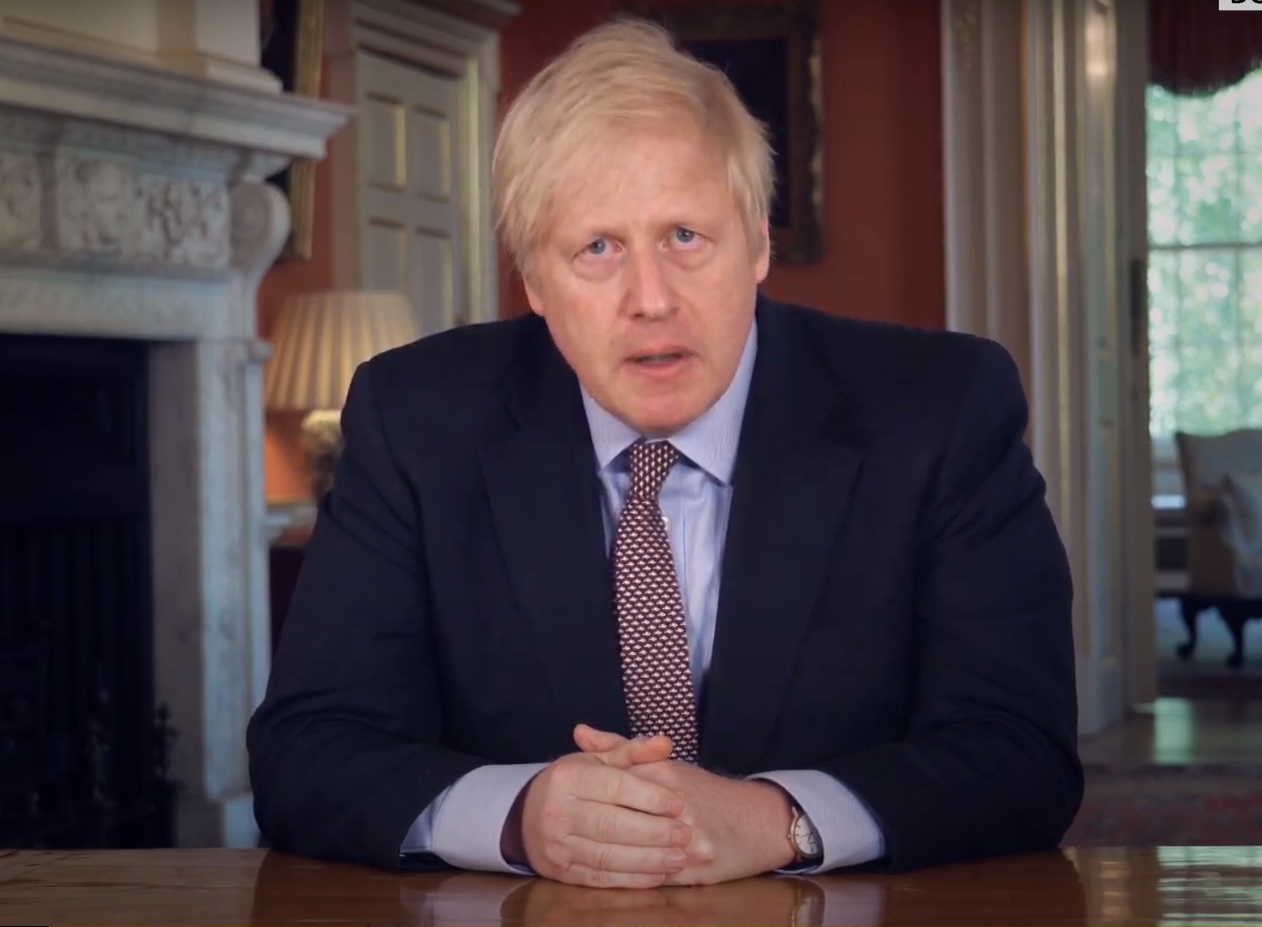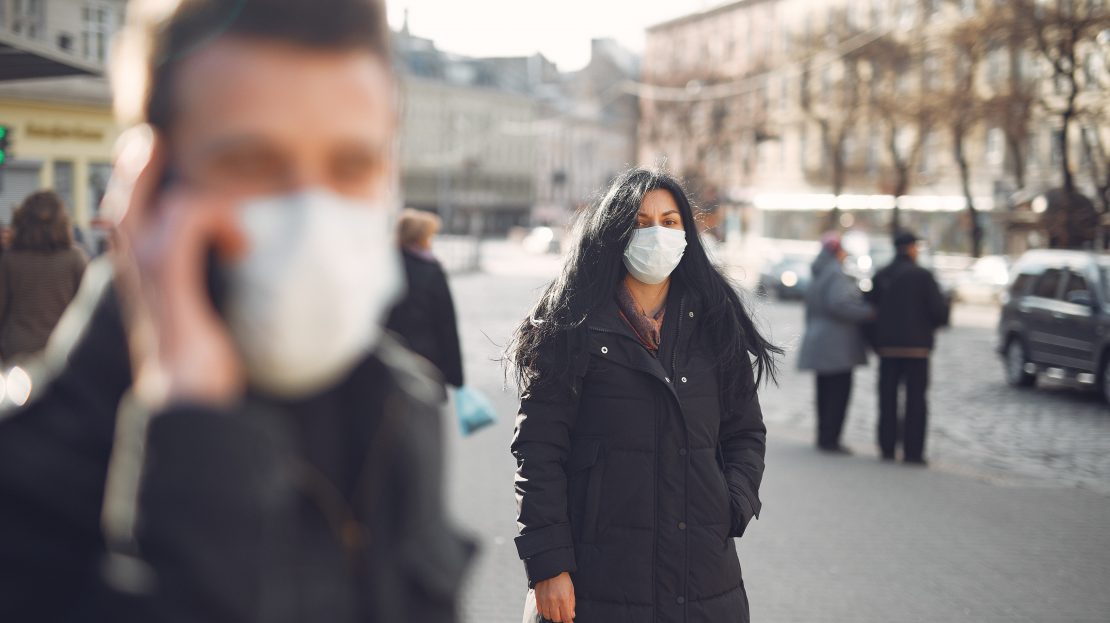Update: 30 June 2020 – EachOther has produced an updated timeline on England’s uneven path to easing lockdown. Read it here.
Boris Johnson has outlined the “first sketch of a roadmap for reopening society,” almost two months after coronavirus lockdown measures were first introduced.
The new plans could see the some shops, nurseries and primary schools in England partially reopen from June, and some parts of the hospitality industry could be back from July.
In an address to the nation on Sunday, the PM stressed that “this is not the time to simply end the lockdown this week”. “Instead we are taking careful steps to modify our measures,” he said.
He set out the details of a new five-tier Covid Alert System which will “tell us how tough we have to be on our social distancing measures”.
The scale ranges from the least severe Level One, indicating the disease is no longer present in the UK, through to Level Five – requiring the toughest and strictest measures.
The alert level will be run by a new Joint Biosecurity Centre and determined primarily by R – the rate at which the virus is reproducing – and the number of infections in the UK.
The PM said the country has been at Level Four since the lockdown was introduced almost seven weeks ago and can now “move in steps towards level three”.
The Covid-19 outbreak has killed more than 280,500 people as it sweeps across the globe. In the UK, the number of people to die in stands at 31,855.
Under Article 2 of the Convention on Human Rights (ECHR), the UK government and other public authorities have a legal obligation to take positive steps to protect people whose lives are at risk.
It is not an “absolute” obligation, which means the state may not always be able to fulfil it due to limited resources. For example, it may not have to provide life-saving drugs to everyone in all circumstances.
Action the government is taking to protect lives amid the coronavirus pandemic, including quarantine and isolation policies, is interfering with our other rights.
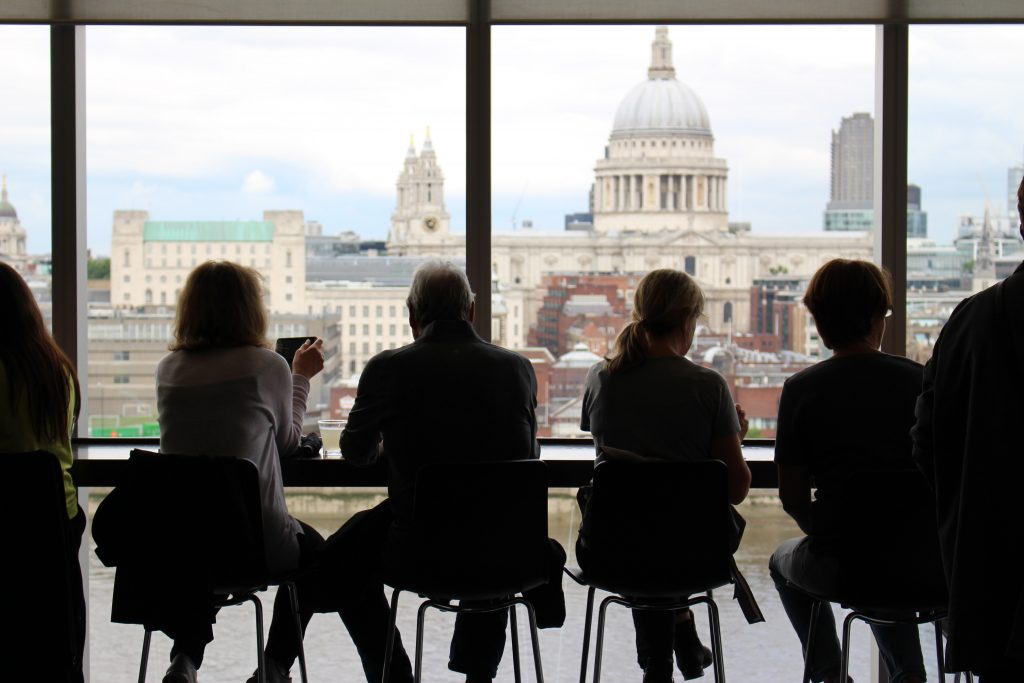
People are banned from social spaces (Credit: Christian Battaglia / Unsplash)
Among those affected is our the right to liberty (Article 5), freedom of assembly (Article 11), and freedom of movement (Protocol 4 Article 2 of the ECHR – but this has not yet been brought into UK law). These rights must be balanced with the right to life.
All three of these rights can be lawfully interfered with on the grounds of protecting public health. The right to liberty specifically enables lawful detention of people for the purpose of preventing the spread of an infectious disease.
Provided that the government measures are necessary and proportionate to a legitimate aim (such as preventing the spread of a pandemic), interferences with the rights to liberty, assembly, and movement will comply with human rights.
Johnson has now provided a sketch for how the lockdown will begin to be eased and has encouraged people who cannot work from home to return to work this week. But unions and politicians, among others, are concerned as to what protections are in place to prevent these workers contracting Covid-19.
There should be no return to work until it is safe to do so.
If work cannot be done safely, it should not proceed.
People must come before private profit.
— Jeremy Corbyn (@jeremycorbyn) May 10, 2020
So, how did we get here? EachOther looks at the evolution of the lockdown restrictions on our freedom to move and the path ahead.
December 2019
The Covid-19 outbreak starts in Wuhan, China. The virus is believed to have originated in a food market selling wildlife.
January 2020
As the situation in Wuhan deteriorates, Heathrow airport begins screening all arrivals from Wuhan.
The UK’s first two patients test positive for Covid-19 – two Chinese nationals from the same family who were staying at a York hotel.
Britons from Wuhan are placed in 14-day quarantine at a specialist hospital in the Wirral after being brought back on an evacuation plane.
February 2020
The first transmission of Covid-19 within the UK is confirmed. The UK government decides not to follow Italy and China in imposing restrictions on liberty and movement. Instead, the government advises a range of voluntary restrictions such as “social distancing” and, if any symptoms are exhibited, self-isolation and quarantine.
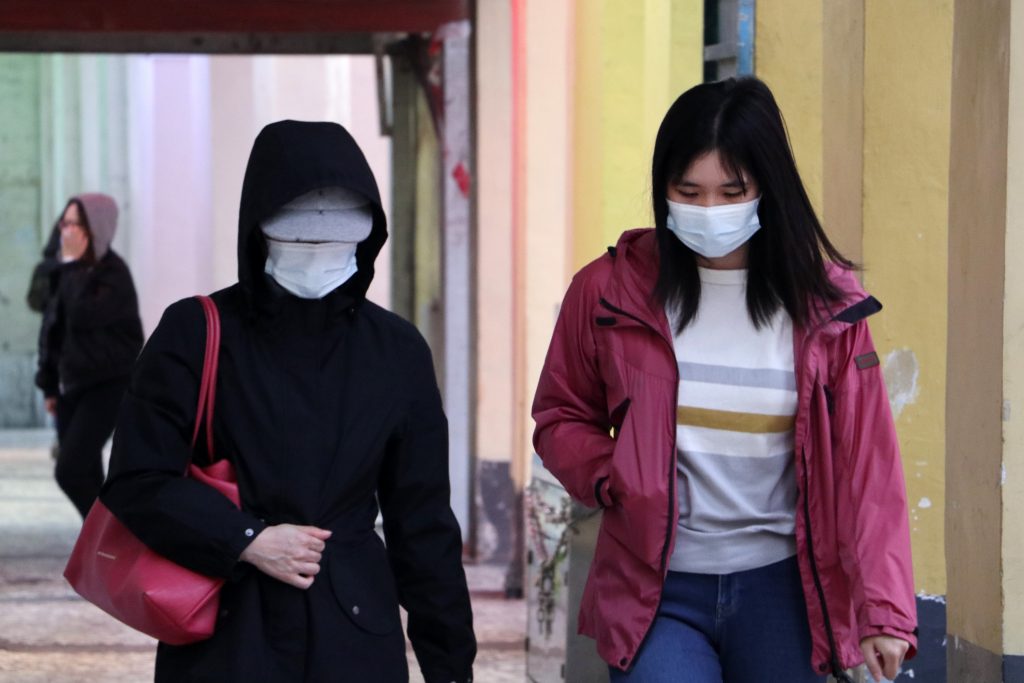
China had much tougher social distancing measures (Credit: Macau Photo Agency / Unsplash)
On February 10, health secretary Matt Hancock also introduces strengthened powers for public health officials to quarantine people against their will, if necessary.
It came following reports that one person quarantined at the Wirral was “threatening to abscond” from the isolation unit despite signing a contract agreeing to a 14-day quarantine period after returning from Wuhan.
The Health Protection (Coronavirus) Regulations 2020 interferes with the right to liberty by enabling the detention of people who are reasonably believed to be infected for the purposes of screening and testing. This pursues the legitimate aim of preventing the spread of a contagious disease. The “reasonable belief” required before detention means that detentions are likely to be necessary and proportionate, and therefore human rights compliant.
15 March 2020
Hancock warns that over-70s would be asked to “self-isolate”, by not leaving their homes, for an extended period “within weeks”. Due to the voluntary nature of the restrictions, there is no interference with human rights.
16 March 2020
Boris Johnson advises everyone in the UK against “non-essential” travel and contact with others and suggests people should avoid pubs, clubs, theatres and work from home if possible. At this stage, these are merely suggestions. He warns that other vulnerable groups, including pregnant women and those with underlying conditions, may be asked to self-isolate. Many business express anger that the PM has not forced them to close – which could have offered them financial protection.
20 March 2020
Boris Johnson orders all pubs, cafes, restaurants, bars and gyms to close. The chancellor also announces that the taxpayer will meet 80 percent of the wages of employees temporarily sent home from firms hit by the crisis.
Though peaceful enjoyment of property is protected by the ECHR in Protocol 1 Article 1, this right can be interfered with in the public interest. As advice to avoid social contact had not been voluntarily heeded, it can be argued closing premises is in the public interest.
23 March 2020
The prime minister announces a nationwide lockdown – a drastic set of measures restrict movement and assembly. It is announced that police will be granted powers within days to enforce the government’s “social distancing” measures.
The public is supposed to stay at home and only leave for list of reasonable excuses.
It comes following reports of many people flouted its advice on “social distancing” – staying home as much as possible to curb the spread of the virus.
The government also asks about 1.5million vulnerable people who will likely need hospital treatment to “shield” themselves. This involves voluntarily staying at home for 12 weeks to avoid getting the virus. This is not currently a legal requirement.
Please join me for an important update on #coronavirus #StayHomeSaveLives pic.twitter.com/QSlIOIaYsF
— Boris Johnson #StayHomeSaveLives (@BorisJohnson) March 23, 2020
25 March 2020
The Coronavirus Act 2020 is passed granting the government and other authorities “unprecedented” powers.
It provides the health secretary the power to prohibit events and gatherings, for the purpose of preventing the transmission of coronavirus.
This power affects our right to freedom of assembly but pursues a legitimate aim that is necessary and proportionate to the threat posed by coronavirus.
However, there are concerns that the Act lacks safeguards to protect industrial action, which could be likely given the economic fallout of the coronavirus crisis.
The Act also grants police, immigration officers and health officials powers to detain “potentially infectious” persons.
These powers further interfere with the rights to liberty and assembly. However, they are limited to the legitimate aim of controlling coronavirus. The legislation states that restrictions must be necessary and proportionate, and must take into account that person’s well-being and personal circumstances.
Due to this balancing act and requirements of necessity and proportionality, the restrictions on an individual’s rights are likely to be valid.
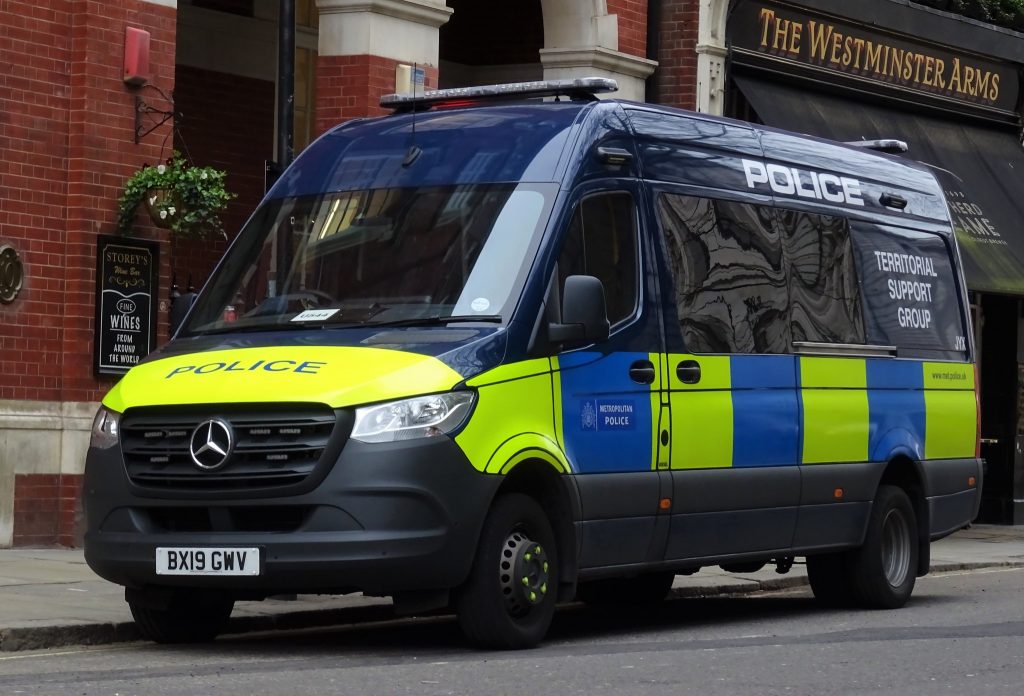
Police have the powers to detain anyone they believe could have the virus (Credit: Flickr)
26 March 2020
The police’s new enforcement powers come into effect following Johnson’s announcement of a nationwide lockdown on 23 March.
The legal basis for the police’s strengthened powers is the Health Protection (Coronavirus, Restrictions) (England) Regulations 2020.
People are no longer allowed to leave their home without reasonable excuse. This is, in effect, a form of house arrest. It means that we are only supposed to leave our homes for limited reasons. The four most common reasons are:
- Shopping for necessities like food and medicine
- Taking exercise – but only once a day
- For medical reasons, to provide care or help to vulnerable persons
- For essential work (list here), and non-essential work where working from home is not possible.
Also banned are public gatherings of more than two people – with those found in breach facing a fine of £30 in the first instance. There are even fewer permitted reasons to gather than there are to leave your house.
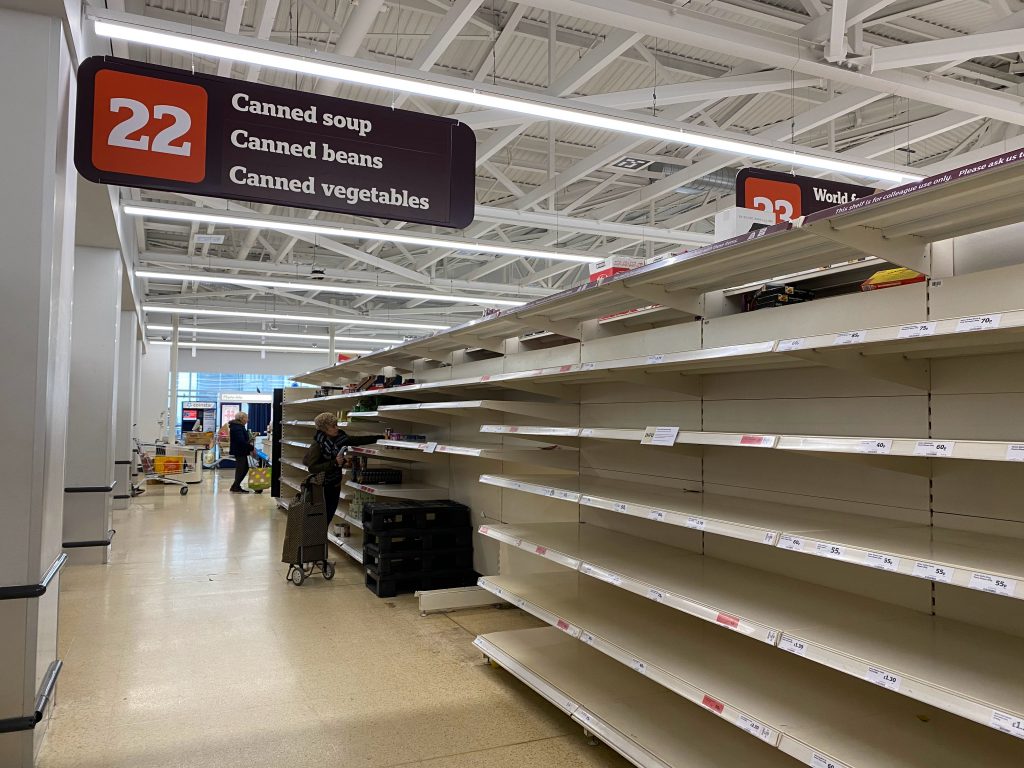
Supermarkets have been stripped bare by panic-buyers (Credit: John Cameron / Unsplash)
The new regulations will hopefully provide greater clarity after the government was criticised for being vague and uncertain.
These measures are serious intrusions into our rights to liberty, assembly and movement. They of course pursue a legitimate aim, and so far have been limited to what is strictly necessary and should be exercised proportionately to individual circumstances.
The broad police powers, however, are quite vague and some commentators are concerned about their misuse.
27 March 2020
Johnson announces that he has tested positive for Covid-19 but intends to continue his duties as prime minister while self-isolating.
30 March 2020
Ex-Supreme Court judge Lord Sumption warns that areas of the country risk becoming a “police state” following a series of incidents in which officers were accused of being overzealous in using their new coronavirus powers.
Sumption singled out Derbyshire Police’s use of drones to shame visitors at local beauty spots. The force also dyed the “Blue Lagoon” of Buxton black to deter people gathering near it.
31 March 2020
Police are issued with guidelines on their new powers to enforce the lockdown after a number of forces were accused of being heavy-handed.
The guidance, issued by the College of Policing (COP) and National Police Chiefs Council (NPCC), aims to forge consistency in how the 44 forces in England and Wales use their powers under the Health Protection (Coronavirus, Restrictions) Regulations 2020.
It tells officers to “police by consent”, encouraging the public to comply with the lockdown and with social distancing voluntarily in the first instance “by stressing the risks to public health and the NHS”.
3 April 2020
Police admit that they wrongfully charged a woman with a crime under new coronavirus laws.
Marie Dinou, 41, had been fined £660 after police found her “loitering between platforms” at Newcastle Central station on 28 March. She refused to give officers her name, address or reasons for travel.
Dinou had been suspected of a railway ticket offence but was instead prosecuted using the Coronavirus Act 2020, which only applies to “potentially infectious persons”. The conviction was due to be quashed and police admitted “it shouldn’t have happened”.
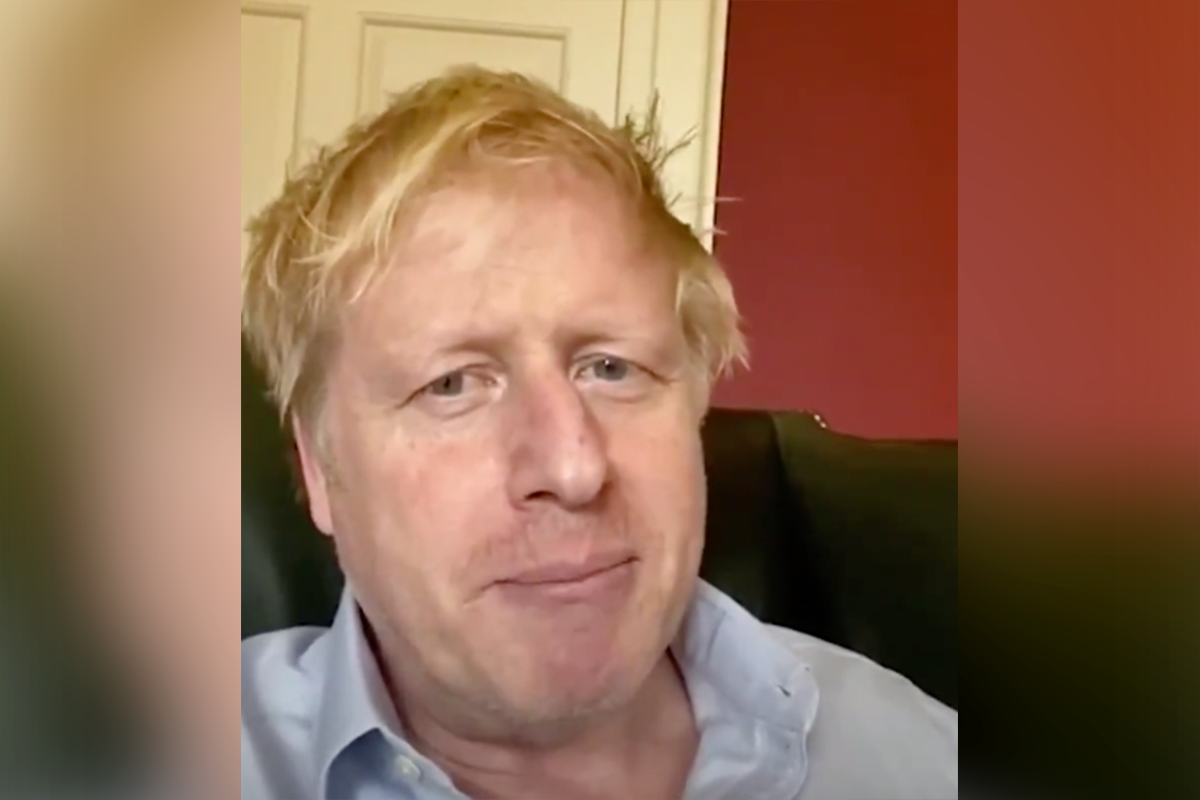
Prime Minister Boris Johnson. Credit: Boris Johnson
6 April 2020
Downing Street announces that Boris Johnson has been moved to an intensive care unit after his Covid-19 condition worsens.
The PM had been admitted to St Thomas Hospital, in London, three days earlier.
Foreign secretary Dominic Raab is asked to deputise for Johnson “where necessary”, a spokesman added.
12 April 2020
Johnson is discharged from hospital but does not immediately return to work. He instead spends time recovering in his Chequers residence.
Hancock announces that the NHS is developing an app which will alert users whenever they have been in contact with someone who is believed to have contracted Covid-19.
The Times newspaper hails the app as “holding the key” to lifting lockdown restrictions.
It is hoped that it will make it easier for people to know who needs to be in quarantine and who does not. But a number of experts have questioned how realistic these expectations are and what the implications will be for our privacy.
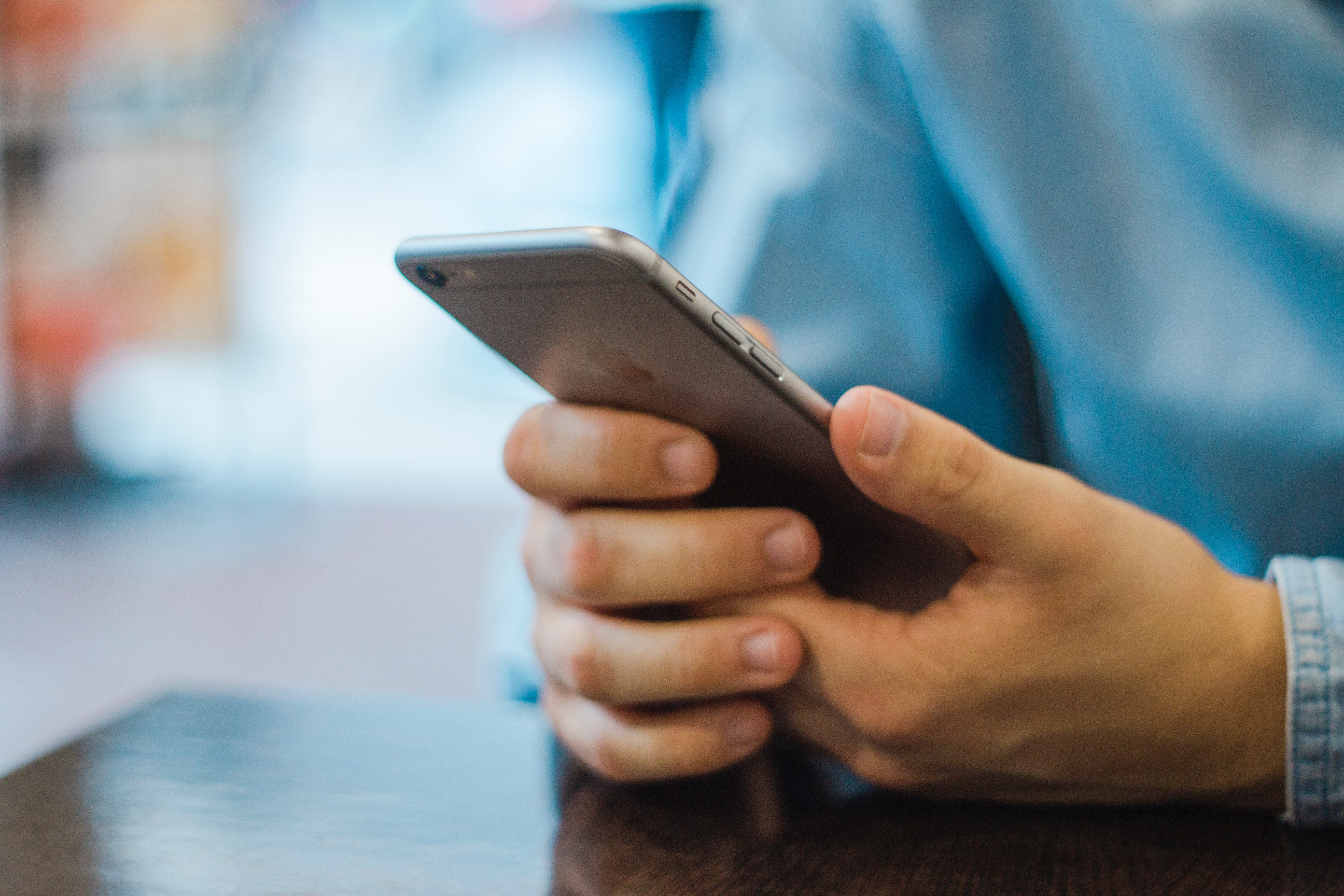
A person holding an iPhone. Credit: Pexels.
14 April 2020
Police admit a second wrongful conviction under new coronavirus laws.
A 21-year-old man was arrested outside a leisure centre in Tooting, southwest London, on 28 March. He was charged under the same section of the Coronavirus Act as Marie Dinou.
His conviction was quashed after the Press Association raised concerns about how the law had been applied in London magistrates’ court cases.
15 April 2020
Labour leader Keir Starmer calls on the government to publish an “exit strategy” from the coronavirus lockdown amid expectations the measures will be renewed for at least another three weeks.
“We’ve got to have the trust of the public,” Starmer told BBC Radio 4’s Today programme.
“For that trust there needs to be transparency and openness – they need to know what the thinking is on when lockdown will end.”
The government said it would confuse the public to talk about an exit strategy before the virus has reached its peak.
16 April 2020
Foreign secretary Dominic Raab announces at the daily Downing Street press conference that the coronavirus lockdown measures will remain in place “for at least the next three weeks”.
He said that “any change to our social distancing measures now would risk a significant increase in the spread of the virus”.
“That would threaten a second peak of the virus and substantially increase the number of deaths. It would undo the progress we have made to date and as a result require an even longer period of the social distancing measures.”
22 April 2020
The government makes a number of changes to the lockdown regulations in England without warning.
The key change is that it is no longer unlawful to only leave the place you’re living without a reasonable excuse – but to be outside of your place of residence at all without a reasonable excuse.
27 April 2020
Johnson returns to Downing Street to take charge of the UK’s response to the coronavirus outbreak once again.
30 April 2020
Wealthy businessman Simon Dolan announces he intends to challenge the government over the legality of the coronavirus lockdown, fearing it will kill more people than it saves.
Dolan warns the health secretary that he will issue proceedings for a judicial review unless the government reverses some lockdown measures and reinstates freedom of movement.
His lawyers argue the lockdown is legally defective and disproportionate in law.
5 May 2020
Official figures show that the number of people to die with coronavirus in the UK has reached 29,427, surpassing Italy to become the highest toll in Europe.
Imperial College London’s Prof Neil Ferguson, who was among the scientists to advise Johnson to adopt lockdown restrictions, resigns after it is revealed (£) he was visited by a lover in breach of the rules on two occasions.
A group of leading scientists later insist that the scientific basis for the coronavirus lockdown is the work of a large group of experts, and that Ferguson’s voice was one among many.
7 May 2020
The first major trial of the NHS’ Covid-19 contact-tracing app gets underway in the Isle of Wight. Questions remain around its efficacy and the lawfulness of its interference in our right to privacy.
The majority of newspaper headlines focus on the possibility of lockdown measures being eased from Monday 11 May.
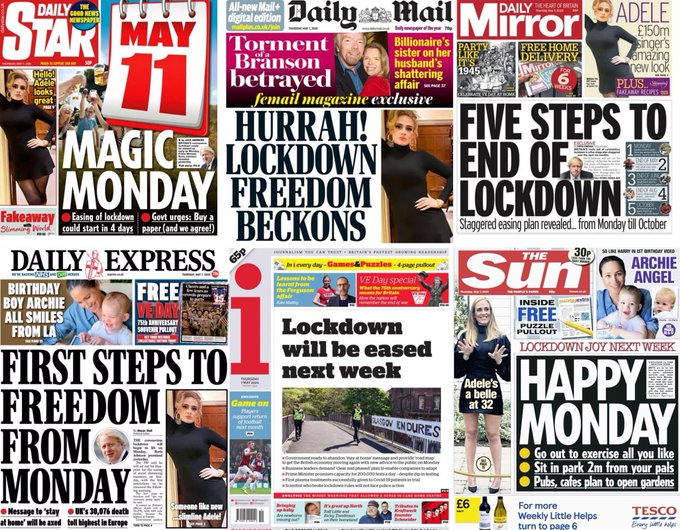
The government and papers are accused of confused messaging and encouraging the public to breach the official advice to stay home and stop the spread of the virus.
Foreign secretary Dominic Raab later clarifies that any changes to the coronavirus lockdown will be “modest” at the daily Downing Street briefing on the coronavirus crisis.
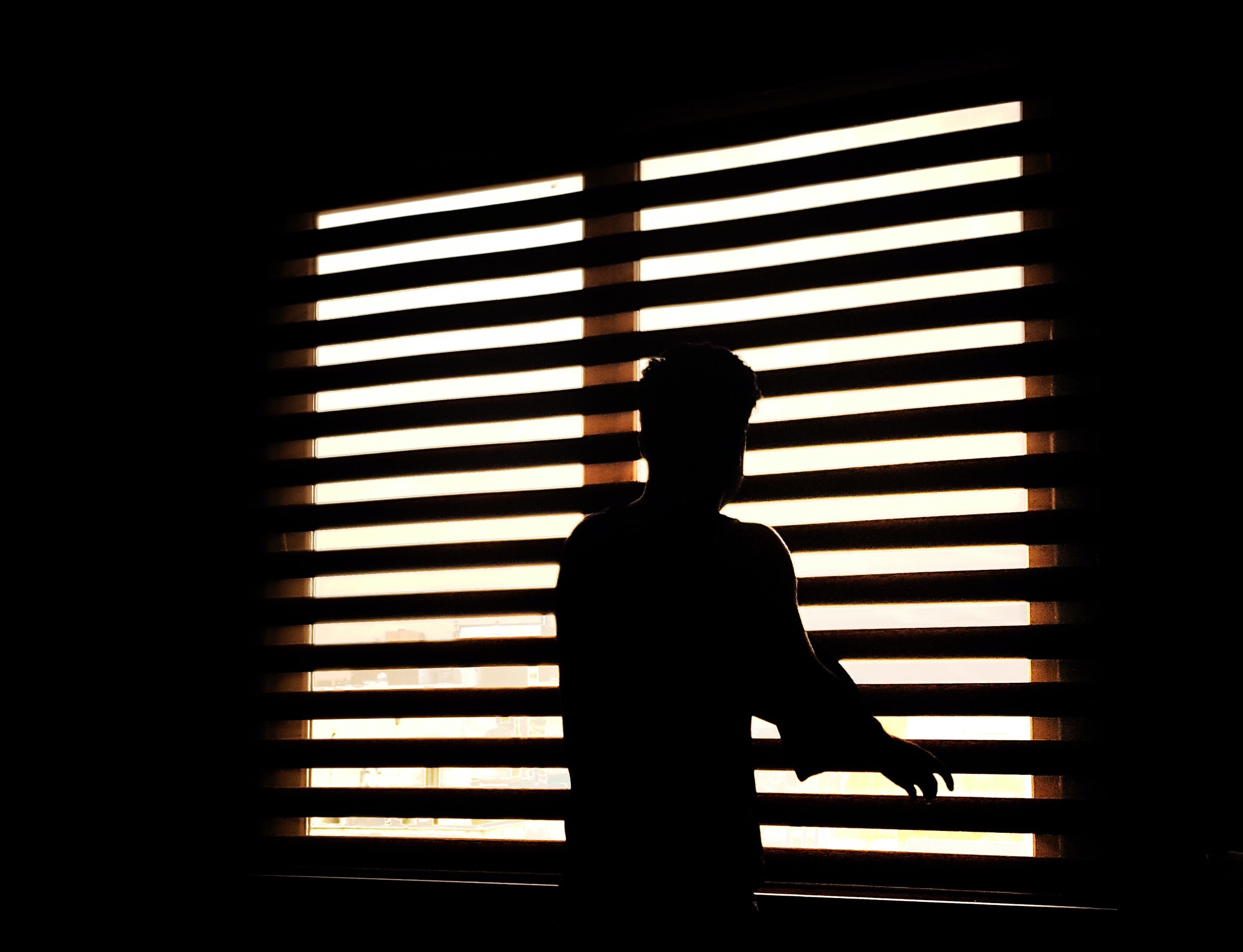
People in the UK are currently only able to leave their homes with a reasonable excuse under current lockdown measure. Credit: Unsplash
10 May 2020
PM Boris Johnson sets out a three-step “conditional” plan to begin easing lockdown restrictions.
In step one, Johnson said that those who cannot work from home, such as construction workers, “should be actively encouraged to go to work” from Monday.
He recommended that workers commute by car, foot or bike but added that public transport operators will be following “Covid-secure” standards and that guidance is being drafted for employers to make workplaces Covid-secure.
He also encouraged the public to take “more and even unlimited amounts of outdoor exercise” from Wednesday, while continuing to maintain physical distancing. Fines will be increased for those who flout physical distancing rules, he added.
In step two, the government hopes that by 1 June it may be able to begin the phased reopening of shops as well as partially reopening primary schools – starting with reception, Year 1 and Year 6.
In step three, Johnson hopes that “at least some of the hospitality industry and other public places,” will be able to reopen by July at the earliest.
He stressed that these steps would be conditional on the public’s continued adherence to social distancing guidance and the prevention of any future resurgence of the outbreak.
Johnson also confirmed that quarantine measures will be imposed anyone coming into the country by air.
Trade unions have told the PM that there should be no return to work until they feel safe. While Scotland’s first minister Nicola Sturgeon has lead widespread criticism of the government’s new “stay alert” mantra – which many have found to be confusing.
Rights under lockdown
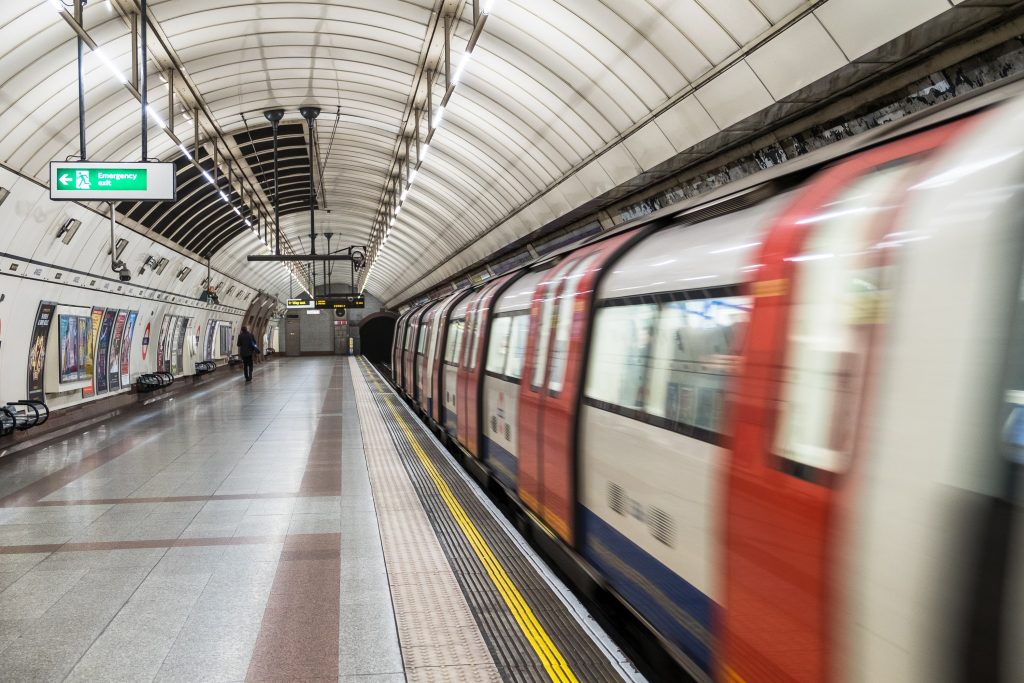
Key workers are allowed to travel (Credit: Pau Casals / Unsplash)
In difficult times like these, human rights can mistakenly be viewed as unnecessary obstacles.
But our rights actually enable governments to take effective action and help prevent policies from doing more harm than good through unnecessary and disproportionate deprivations of liberty, and restrictions on assembly and movement.
The coronavirus raises incredibly complex legal issues and, while this article barely scratches the surface, hopefully it will provide a starting point for readers to consider the human rights implications of the pandemic.
The interaction between human rights and public health crises brings the basic dignity of humans to the fore.
Human rights exist to help governments take into account basic rights and ensure their responses are necessary, proportionate, and rational. They were built for crises like this.

